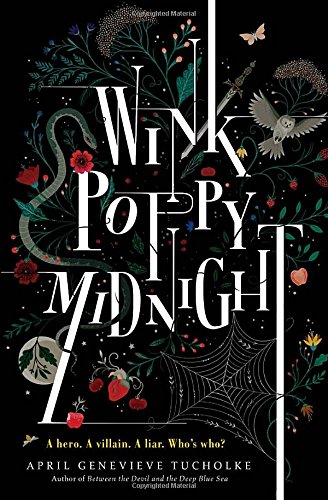I began the Classics Club a few years ago, but then took a break. I'm ready to restart it!
Here are the basic rules of The Classics Club:
choose 50+ classics
I have chosen 50+ with the expectation that some will be terrible and I won't want to read them. I'm shooting for a goal of 50. I have chosen some that I have always intended to read, or feel like I should read. I've chosen others that I've read in the past and would like to read again to see if I have a better understanding, or just for the pure enjoyment of revisiting an old friend.
list them at your blog
Tada! (see below)
choose a reading completion goal date up to five years in the future and note that date on your classics list of 50+ titles
My orginal goal was to have read my 50 by 6 July 2018. My new goal is June 2021 (Holy Cow!) The Classics Club stresses that this is a "living list/goal" and as such it the list can grow, the goal date can be extended. . . the point is to read and grow with the classics. That being the case, I reserve the right to add to or subtract from my list.
write about each title on your list as you finish reading it, and link it to your main list
The point of this is not to write reviews, but to initiate discussion by writing about "your reading thoughts".
Here is my list; note that I completed some a few years ago and have reposted my discussion on this blog.
Here are the basic rules of The Classics Club:
choose 50+ classics
I have chosen 50+ with the expectation that some will be terrible and I won't want to read them. I'm shooting for a goal of 50. I have chosen some that I have always intended to read, or feel like I should read. I've chosen others that I've read in the past and would like to read again to see if I have a better understanding, or just for the pure enjoyment of revisiting an old friend.
list them at your blog
Tada! (see below)
choose a reading completion goal date up to five years in the future and note that date on your classics list of 50+ titles
My orginal goal was to have read my 50 by 6 July 2018. My new goal is June 2021 (Holy Cow!) The Classics Club stresses that this is a "living list/goal" and as such it the list can grow, the goal date can be extended. . . the point is to read and grow with the classics. That being the case, I reserve the right to add to or subtract from my list.
write about each title on your list as you finish reading it, and link it to your main list
The point of this is not to write reviews, but to initiate discussion by writing about "your reading thoughts".
Here is my list; note that I completed some a few years ago and have reposted my discussion on this blog.
Peter Pan by J.M. Barrie(read my discussion here)- Songs of Innocence and Experience by William Blake
The Martian Chronicles by Ray Bradbury(read my discussion here)- The Professor by Charlotte Bronte (re-read)
Wuthering Heights by Emily Bronte (re-read)(read my discussion here)The Thirty-Nine Steps by James Buchan(read my discussion here)"Breakfast at Tiffany's" by Truman Capote(re-read) (my discussion here)- Robinson Crusoe by Daniel Defoe
- The Mill on the Floss by George Eliot
- The Wasteland by T.S. Eliot (re-read)
- A Passage to India by E.M. Forester
- Ruth by Elizabeth Gaskell
- Wives and Daughters by Elizabeth Gaskell
The Prophet by Kahlil Gibran(my discussion here)- The Wind in the Willows by Kenneth Grahame
- Jude the Obscure by Thomas Hardy
- Mayor of Castlebridge by Thomas Hardy
- Return of the Native by Thomas Hardy (re-read)
- Tess of the D'Urbervilles by Thomas Hardy (re-read)
The Remains of the Day by Kazuo Ishiguro(my discussion here)The Turn of the Screw by Henry James (re-read)(my discussion here)Phantom of the Opera by Gaston Leroux(my discussion here)Lilith by George MacDonald (re-read)(read my discussion here)Phantasties by George MacDonald (re-read)(my discussion here)- The Princess and the Goblin by George MacDonald
- The Garden Party and other stories by Katherine Mansfield
1984 by George Orwell(read my discussion here)- Animal Farm by George Orwell
The Bell Jar by Sylvia Plath(read my discussion here)-
Excellent Womenby Barbara Pym(read my discussion here) - Wide Sargasso Sea by Jean Rhys
The Heir by Vita Sackville-West(read my discussion here)Seducers in Ecuador by Vita Sackville-West(read my discussion here)The Catcher in the Rye by JD Salinger(re-read) (read my discussion here)- Franny and Zooey by JD Salinger (re-read)
- Nine Stories by JD Salinger
- Raise High the Roof Beam, Carpenters and Seymour: An Introduction by JD Salinger
- Henry IV by Shakespeare (re-read)
- Henry V by Shakespeare (re-read)
- King Lear by Shakespeare (re-read)
Measure for Measureby Shakespeare(re-read) (my discussion here)The Merchant of Venice by Shakespeare(re-read) (my discussion here)The Taming of the Shrew by Shakespeare(re-read) (my discussion here)Twelfth Night by Shakespeare(re-read) (my discussion here)Life and Death of Harriet Frean by May Sinclair(read my discussion here)The Strange Case of Dr. Jekyll and Mr. Hydeby Robert Louis Stevenson(read my discussion here)Cheerful Weather for the Wedding by Julia Strachey(read my discussion here)Flame and Shadow by Sara Teasdale(re-read) (read my discussion here)- Love Poems by Sara Teasdale
The Warden by Anthony Trollope(my discussion is here)- Fathers and Sons by Ivan Turgenev (re-read)
Slaughterhouse Five by Kurt Vonnegut(read my discussion here)-
The Time Machineby H.G. Wells(read my discussion here) - The House of Mirth by Edith Wharton
Night and Day by Virginia Woolf(read my discussion here)- Orlando by Virginia Woolf
-
To The Lighthouseby Virginia Woolf (re-read)(read my discussion here) - The Waves by Virginia Woolf (re-read)
- The Years by Virginia Woolf (re-read)






